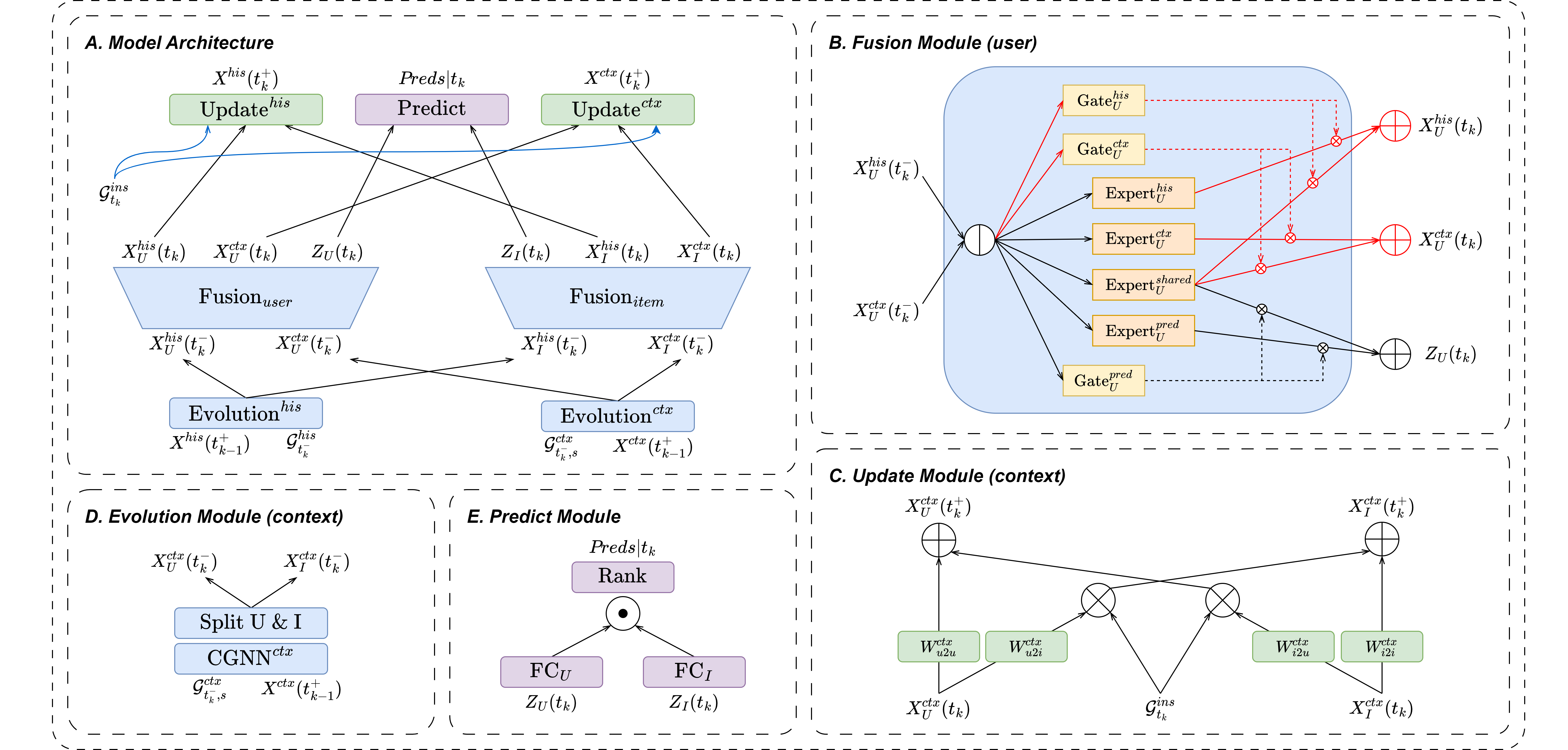CPMR: Context-Aware Incremental Sequential Recommendation with Pseudo-Multi-Task Learning
The motivations of users to make interactions can be divided into static preference and dynamic interest. To accurately model user representations over time, recent studies in sequential recommendation utilize information propagation and evolution to mine from batches of arriving interactions. However, they ignore the fact that people are easily influenced by the recent actions of other users in the contextual scenario, and applying evolution across all historical interactions dilutes the importance of recent ones, thus failing to model the evolution of dynamic interest accurately. To address this issue, we propose a Context-Aware Pseudo-Multi-Task Recommender System (CPMR) to model the evolution in both historical and contextual scenarios by creating three representations for each user and item under different dynamics: static embedding, historical temporal states, and contextual temporal states. To dually improve the performance of temporal states evolution and incremental recommendation, we design a Pseudo-Multi-Task Learning (PMTL) paradigm by stacking the incremental single-target recommendations into one multi-target task for joint optimization. Within the PMTL paradigm, CPMR employs a shared-bottom network to conduct the evolution of temporal states across historical and contextual scenarios, as well as the fusion of them at the user-item level. In addition, CPMR incorporates one real tower for incremental predictions, and two pseudo towers dedicated to updating the respective temporal states based on new batches of interactions. Experimental results on four benchmark recommendation datasets show that CPMR consistently outperforms state-of-the-art baselines and achieves significant gains on three of them. The code is available at: https://github.com/DiMarzioBian/CPMR.
PDF Abstract




 MovieLens
MovieLens